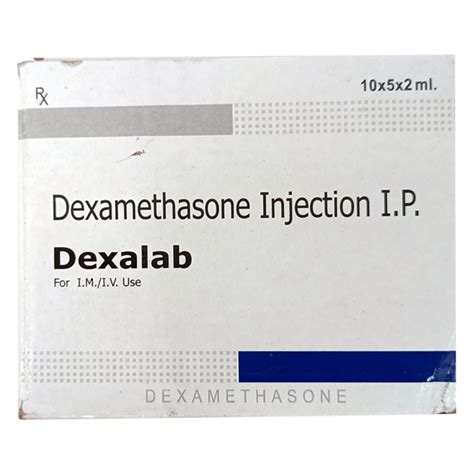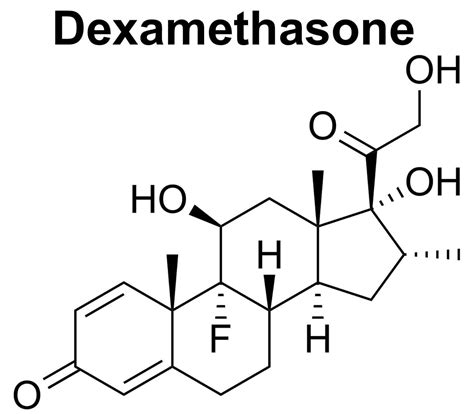Intro
Discover the 5 uses of Dexamethasone, a potent corticosteroid, for treating inflammation, autoimmune diseases, and cancer, with applications in immunosuppression, anti-inflammatory, and palliative care, offering therapeutic benefits and symptom relief.
Dexamethasone is a synthetic corticosteroid that has been widely used in the medical field for its potent anti-inflammatory and immunosuppressive properties. It is a long-acting steroid that can be administered orally, intravenously, or topically, depending on the condition being treated. The importance of dexamethasone lies in its ability to reduce inflammation, suppress the immune system, and alleviate symptoms associated with various medical conditions. In this article, we will delve into the 5 uses of dexamethasone, exploring its benefits, working mechanisms, and practical examples.
Dexamethasone has been a cornerstone in the treatment of various medical conditions, including inflammatory diseases, autoimmune disorders, and certain types of cancer. Its ability to reduce inflammation and suppress the immune system makes it an effective treatment option for conditions such as rheumatoid arthritis, lupus, and asthma. Additionally, dexamethasone is used to treat certain types of cancer, including leukemia and lymphoma, due to its ability to induce apoptosis (cell death) in cancer cells.
The use of dexamethasone has also been extended to the treatment of COVID-19, where it has shown promising results in reducing the risk of death in patients with severe respiratory symptoms. The RECOVERY trial, a large-scale clinical trial conducted in the UK, demonstrated that dexamethasone reduced the risk of death by 35% in patients with severe COVID-19. This finding has significant implications for the treatment of COVID-19, highlighting the importance of corticosteroids in managing severe respiratory symptoms.
Introduction to Dexamethasone

5 Uses of Dexamethasone

Reducing Inflammation and Swelling
Dexamethasone is commonly used to reduce inflammation and swelling in conditions such as rheumatoid arthritis, lupus, and asthma. Its potent anti-inflammatory properties make it an effective treatment option for these conditions, reducing symptoms such as pain, stiffness, and shortness of breath. For example, in patients with rheumatoid arthritis, dexamethasone can reduce joint inflammation and swelling, improving mobility and reducing pain.Treating Autoimmune Disorders

Treating Certain Types of Cancer
Dexamethasone is used to treat certain types of cancer, including leukemia and lymphoma. Its ability to induce apoptosis (cell death) in cancer cells makes it an effective treatment option for these conditions. For example, in patients with leukemia, dexamethasone can induce apoptosis in cancer cells, reducing the risk of relapse and improving survival rates.Managing Severe Respiratory Symptoms

Reducing Nausea and Vomiting
Dexamethasone is also used to reduce nausea and vomiting in patients undergoing chemotherapy. Its anti-inflammatory properties make it an effective treatment option for these symptoms, improving quality of life and reducing the risk of dehydration. For example, in patients undergoing chemotherapy, dexamethasone can reduce nausea and vomiting, improving appetite and reducing the risk of dehydration.Benefits and Working Mechanisms

Practical Examples
Practical examples of the benefits of dexamethasone include: * Reducing inflammation and swelling in patients with rheumatoid arthritis * Suppressing the immune system in patients with autoimmune disorders * Inducing apoptosis (cell death) in cancer cells in patients with leukemia and lymphoma * Managing severe respiratory symptoms in patients with COVID-19 * Reducing nausea and vomiting in patients undergoing chemotherapyConclusion and Future Directions

What is dexamethasone used for?
+Dexamethasone is used to reduce inflammation and swelling, suppress the immune system, and treat certain types of cancer.
What are the benefits of dexamethasone?
+The benefits of dexamethasone include its potent anti-inflammatory and immunosuppressive properties, making it an effective treatment option for various medical conditions.
What are the side effects of dexamethasone?
+The side effects of dexamethasone include weight gain, mood changes, and increased risk of infection.
We hope this article has provided you with a comprehensive overview of the 5 uses of dexamethasone. If you have any questions or comments, please feel free to share them below. Additionally, if you found this article informative, please share it with others who may benefit from this information.
